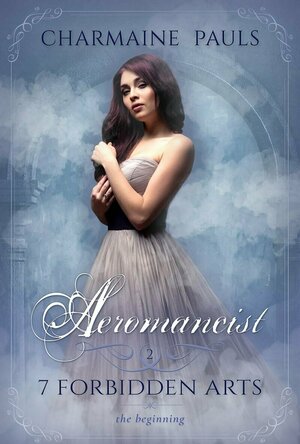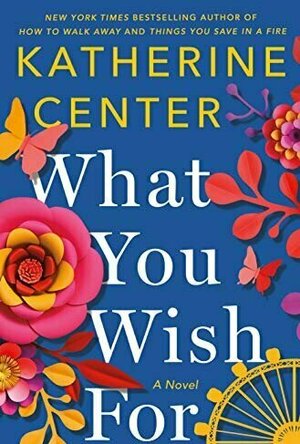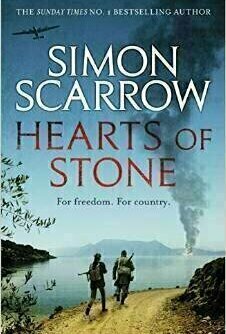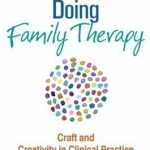
Doing Family Therapy: Craft and Creativity in Clinical Practice
Book
Featuring rich case examples, this book has helped tens of thousands of students and therapists...
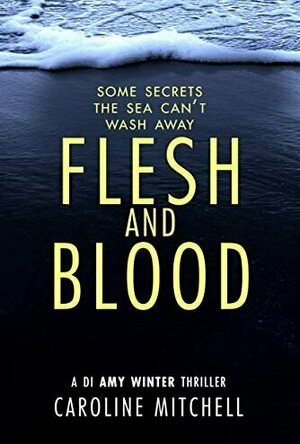
Flesh and Blood (DI Amy Winter #4)
Book
A string of suicides. A community in terror. And a chilling conspiracy only DI Amy Winter can crack....
Book Books Book series Police Procedural
Merissa (13730 KP) rated Aeromancist: The Beginning (7 Forbidden Arts #2) in Books
May 20, 2023
The relationship between Kat and Lann was instantly hot, but I loved that Kat was a strong female from the start, and wasn't just going to give in without at least a token resistance! There is plenty of steam within these pages, so be prepared for some heat.
This is only a novella, that just details the 30 days, however, it was absolutely brilliant and I loved every word. It gives a detailed account of the attraction between these two, how they are with each other, pushing boundaries whilst respecting the same.
Can't wait to read the continuation of their story. Highly recommended.
* A copy of this book was provided to me with no requirements for a review. I voluntarily read this book, and the comments here are my honest opinion. *
Merissa
Archaeolibrarian - I Dig Good Books!
Jan 23, 2016
Raising Government Children: A History of Foster Care and the American Welfare State
Book
In the 1930s, buoyed by the potential of the New Deal, child welfare reformers hoped to formalize...
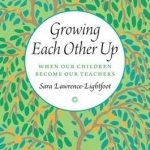
Growing Each Other Up: When Our Children Become Our Teachers
Book
From growing their children, parents grow themselves, learning the lessons their children teach....
Kristy H (1252 KP) rated What You Wish For in Books
Aug 6, 2020
Maybe it's because I'm the child of educators, but I just kept shaking my head at the idea of a principal who could come in and unilaterally make decisions without any resistance. It made it impossible for me to focus on the rest of the story. Apparently Duncan is hired by the school founders' son-in-law--essentially a school board of one. What private school has one person on their board? What sort of private school has parents who just quietly allow someone to paint the halls gray and put bars on the windows??! None of this made any sense to me. All the resistance came down to the teachers?? I've seen parents riot over far less.
I couldn't handle it--could you tell? I also couldn't handle Sam for most of the book. I just get frustrated with Center's heroines. Sam was so whiny about nearly everything. She was more than happy to judge everyone else, yet completely resistant to owning her own life, making any changes, and opening up. Ugh. I wanted to shake her sometimes.
The book was very slow to start. Much rehashing of Sam's own problems, Duncan's arrival and the fact that--can you believe it--he is different than he was before. Hey, did you know Duncan used to be cool and funny, but now he's not?! I didn't! Oh wait, let me tell you again 15 times. Also, let's go into the fact that Sam has some issues and can never ever love again. Did I mention ever?
Also, later, without giving too much away, we completely gloss over how serious PTSD is and whitewash over the severity of things like depression, because focusing on happy things will just take away those issues completely, right? Also most plot points are telegraphed a mile away.
Sigh, I'm probably being too harsh here. The book gets a bit better as things go on. And there's a really cute kid whom I enjoyed. But still. Repetitive, predictable, and not the best at presenting mental health issues. 2.5 stars, rounding to 3 here.
David McK (3692 KP) rated Knights of the Hawk (The Bloody Aftermath of 1066, #3) in Books
Jan 30, 2019
Why do I bring that up? Because the main character of that book - Hereward, known today with the sobriquet 'The Wake' - also appears in this, and is indeed a central character in roughly the first half or so.
That part of the book deals with King Guillaime (William, aka (today) 'The Conqueror') campaign to crush the last(?) of the English resistance to his conquest in the fen country, with Tancred (as always) playing a central role in doing so. Following their eventual success, however, and for plot reasons I am not going to go into here, Tancred finds himself on the run from his former Lord, traveling to Dyfflin (Dublin) in pursuit of his lost love, leading to him allying himself with the most unlikely of allies and launching an assault upon a Dane who has holed up in the Northern Isles.
This, I felt, is another great read in the series: I will be picking up the next when it comes out!
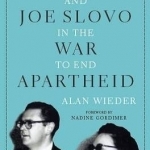
Ruth First and Joe Slovo in the War to End Apartheid
Book
Ruth First and Joe Slovo, husband and wife, were leaders of the war to end apartheid in South...
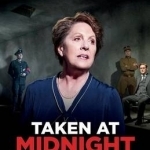
Taken at Midnight
Book
In your quest for respectability I think we can say you have been talking out of both corners of...
David McK (3692 KP) rated Hearts of Stone in Books
Feb 9, 2022
Until recently, I've tended to avoid his few works that are more contemporary in nature, only recently (towards the end of last year) reading Blackout as I felt they were 'too close' (if that makes sense) for comfort for me in that there are still people alive who lived through the setting.
I must admit, I did quite enjoy Blackout so thought I would also give this a go, due to the roughly the same (WW2) setting.
This novel flits back and forth between then and 'now' (of 2013), as the descendants of the main 1940s settings character start to discover more about their ancestors - in particular, as history teacher Anna uncovers the story of her maternal grandmother Eleni, who participated in the Greek resistance on the island of Lefkas during 1943.
The whole had-a-German-friend in 1939 thing almost seems incidental to the story (he's not), until roughly about the final third.
And yes, I did pick up on the arguments in favour of teaching history (a subject I did, mostly, enjoy in school) passages.
